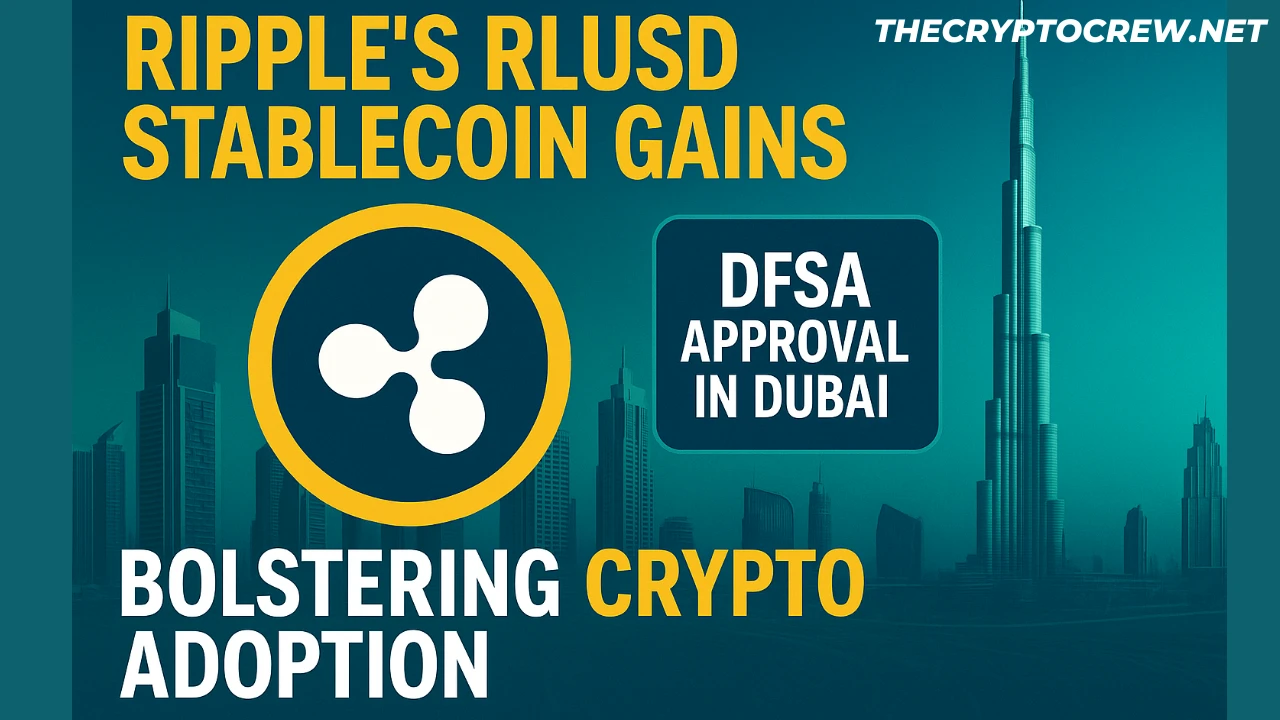On June 3, 2025, Ripple gain a significant milestone as its RLUSD stablecoin received approval from the Dubai Financial Services Authority (DFSA) to operate within the Dubai International Financial Centre (DIFC).
This makes Ripple the first blockchain-enabled payments provider in DIFC, a leading financial hub in the Middle East. The announcement, shared by Cointelegraph on X, underscores Dubai’s growing role as a crypto-friendly jurisdiction and Ripple’s expanding global footprint.
Launched on December 17, 2024, RLUSD is a USD-denominated stablecoin designed for enterprise-grade financial transactions, emphasizing trust, utility, and compliance. Since its debut, RLUSD has surpassed a $130 million market cap, reflecting strong market interest.
The DFSA’s approval allows RLUSD to be used for regulated crypto payments and services in DIFC, aligning with the region’s push for blockchain innovation.
A 2024 Ripple survey shows that 64% of Middle East and Africa finance leaders see faster cross-border payments as a key benefit of blockchain, further driving adoption.
Ripple’s achievement adds to its portfolio of over 60 regulatory approvals worldwide, including licenses from Singapore, New York, and Ireland. The DFSA’s framework, detailed in a November 2024 guide, ensures stablecoins like RLUSD meet strict criteria for stability and utility in financial activities such as payments and margin trading.
While RLUSD complements Ripple’s XRP Ledger, its direct impact on XRP’s value remains debated, as many RippleNet users don’t rely on XRP for transactions, according to a May 2025 Motley Fool report.
This development signals a promising future for crypto in the Middle East, with Dubai positioning itself as a global leader in digital finance. Ripple’s continued innovation could redefine cross-border payments, offering faster and more efficient solutions for financial institutions worldwide.



